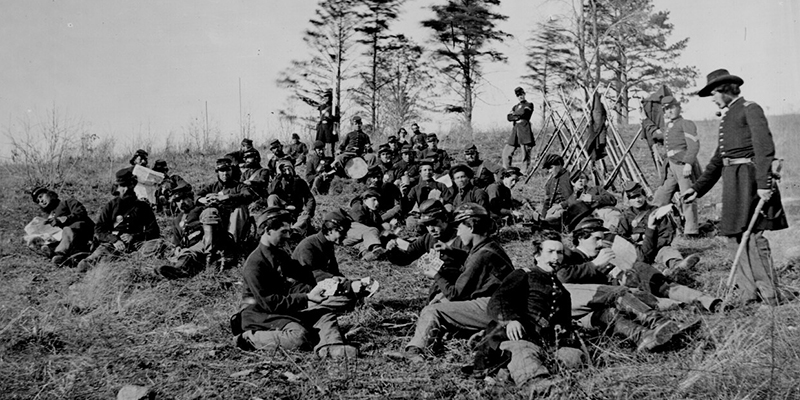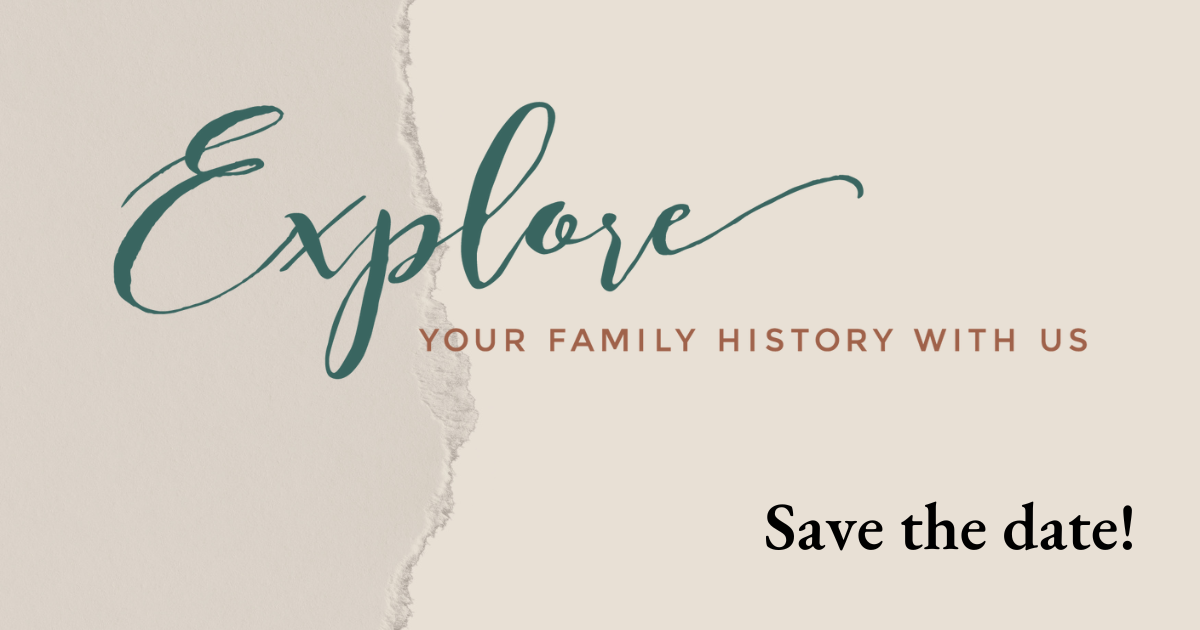Private Voices, Civil War Letters Online

By Barbara Ware
I was listening to a rebroadcast of an NPR Way With Words podcast1 recently. The hosts mentioned the website Private Voices by linguists Michael Ellis (Missouri State University) and the late Michael Montgomery (University of South Carolina) and historian Stephen Berry (University of Georgia). The interest of the hosts, Martha Barnette and Grant Barrett, was the language of the soldiers.

This project began with 4,000 letters from soldiers from North Carolina, South Carolina, Georgia, and Alabama. It now has 2,000 additional letters from soldiers from Ohio, Pennsylvania, Massachusetts, and Maine. Linguists are especially interested in the way that Civil War soldiers and their families often “wrote by ear.” So, the letters may be difficult to read, but more easily understood when read out loud. The letters are transcribed as written, spelling and all.
Why would these be interesting to genealogists and family historians? Context. You may be able to find letters from soldiers whose homes were near those of your ancestors. As I began to explore the site, of course, I first looked for letters from or about my surname. Then I moved on to looking for letters from soldiers in the states and counties where my family lived during the war years.
The main tabs in the site are About, Camp Talk, Word Maps, Writers and Collections and Search. The Search tab is a simple search, best used with one or two words, such as the surname or a location, like “Granville County.” Under the Writers and Collections tab, select Letters to find a more advanced search option. The website shows images of some letters as “Featured Letters.” The Camp Talk tab features a glossary of terms and usages.
I chose the Search tab and entered “Stewart County” hoping to find letters by men that lived near my Ware family. I found two: Thomas A Woodham and William Washington Brown. Using Ancestry, I looked for information on these two men. Woodham was not a name that was associated with my family, but we have some collateral Browns. W. W. Brown corresponded with his mother, Vashti Brown. And I find Vashti is a forename in one of my Stewart County, Georgia collateral lines on which I have done very little research.
While William did not serve with or in the same places as my Ware soldiers, his story will give me context for my Civil War soldiers. In one letter in 1862, William tells his mother “Maw I have lurnd to write in Camp well a nuf to write my leters my self…”2
I am adding William Washington Brown to my genealogy database, for I now have discovered how he connects. His mother, Vashti Whitaker, married Luther. M Brown. Her sister, Sarah Ann Whitaker, married Isaac N. Parker, the son of Martha (Patsey) Springer Parker, who is the sister of my 2g grandmother, Mary (Polly) Springer Ware. Can’t you just imagine that at church on Sunday, Vashti would tell her sisters and church members that she had a letter from W. W., who was with his unit in Virginia?
John Jefcoat was not above sharing gossip about the wife of William Williamson with his wife, Rachel Jefcoat, in a letter telling her “I have a little private matter to right you on this side their fore you will destroy this when you read it.”3 Although my Williamsons had moved to Alabama before “The War,” some of their Jefcoat and Williamson kin were still in South Carolina. The collection of John J. Jefcoat Papers, 1850 to 1891, will be interesting to study.
Note: While searching for a photo of any of the individuals named in this article, I discovered that the Private Voices website does not display images of William Washington Brown’s letters, but they do appear on the Digital Repository of Duke University Library.4
1 Martha Barnette, “Hidden Treasures,” A Way with Words, 28 October 2019 (rebroadcast) https://www.waywordradio.org/civil-war-letters/ and https://www.waywordradio.org/pill-meant-bullet/: accessed 30 October 2019.
2 William Washington Brown Papers, 1861-1863. Private Voices. https://altchive.org/private-voices/node/8650: accessed 30 October 2019.
3 John J. Jefcoat Papers, 1850-1891. Private Voices. https://altchive.org/private-voices/node/11094: accessed 30 October 2019.
4 William Washington Brown Papers. David M. Rubenstein Rare Book & Manuscript Collection. Duke University. https://repository.duke.edu/dc/brownwilliamwashingtonpapers-002388092?page=1&per_page=20: accessed 31 October 2019.

